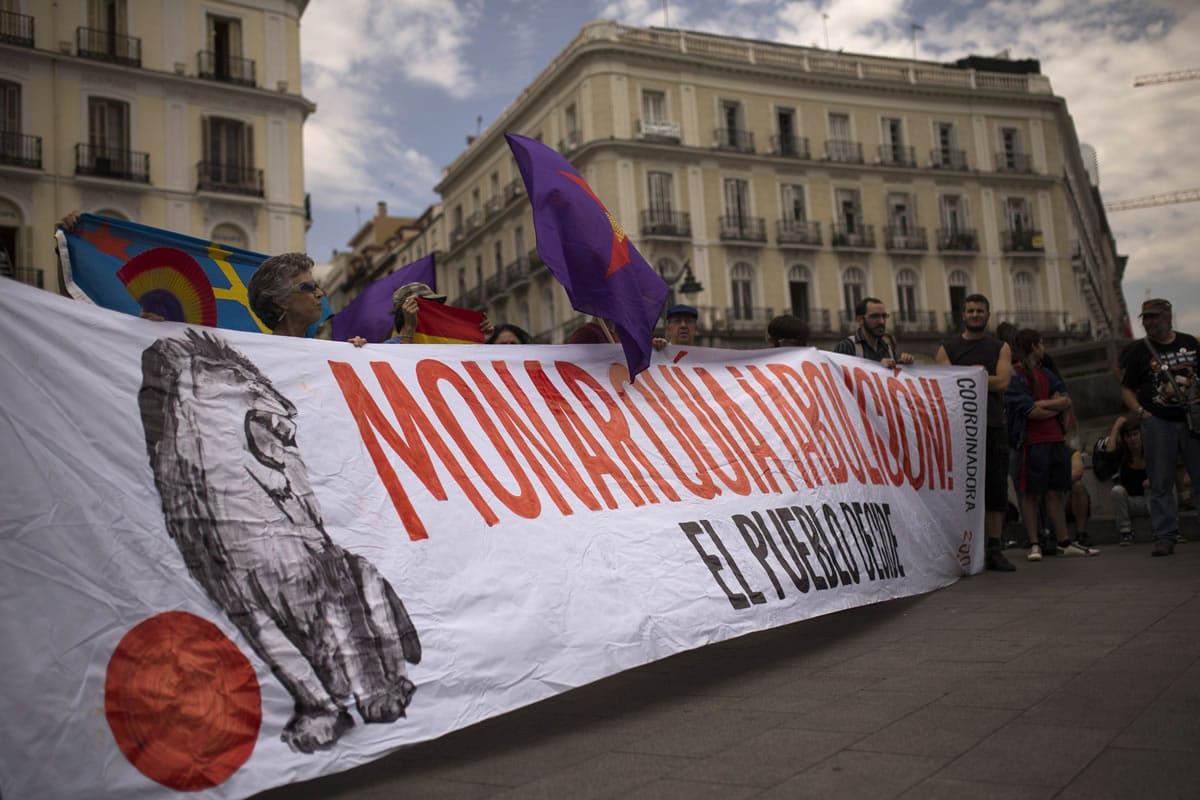MADRID — Spain’s lawmakers passed a bill to formalize the abdication of King Juan Carlos amid public calls to abandon the monarchy and a question mark over the constitutional future of the country’s largest region.
Lawmakers voted 299 to 19 in favor of the bill, with 23 abstentions in the Madrid-based parliament. The governing People’s Party has an outright majority in the lower house with 185 out of 350 lawmakers. The Socialists have 110 seats.
Spain is due to bring down the curtain on King Juan Carlos’s 38-year reign with the coronation of Prince Felipe next week. He assumes the throne as some Spaniards demand a referendum on whether the country should retain the monarchy or become a republic and Catalonia presses for a referendum on independence.
“We are turning a page on the way we live together,” Prime Minister Mariano Rajoy told parliament Wednesday during the debate. Prince Felipe, he said, has “first-hand knowledge about the diversity of our people and culture.”
The law itself is concerned with the formalities of the abdication, yet the debate provided a focus for a wider discussion about Spain’s constitutional future. A large majority of Spaniards support the bill, Rajoy said.
While 56 percent of Spaniards said they supported the monarchy in Sigma Dos poll published by El Mundo newspaper on June 9, a separate survey by Metroscopia for El Pais found that 62 percent would like a vote on whether to continue with a king as head of state. Both pollsters surveyed 1,000 voters in the days following Juan Carlos’s June 2 abdication announcement.
The Spanish succession comes at a moment of respite for a country that’s been battered by financial crises, soaring unemployment and rising levels of poverty since a real estate bubble burst six years ago.
“These crisis demand changes, among them, changes in the constitution,” said Alfredo Perez Rubalcaba, the Socialist leader who will step down next month. Eduardo Madina, one of the leading contenders to succeed him, said he’s a republican, ABC newspaper reported Tuesday.
“We the Socialists don’t hide our republican preference even here and now,” said Rubalcaba. “But there are a lot of examples in the opposition and in the power that show that isn’t incompatible with the monarchy.”
Thousands of Spaniards joined marches on June 7 calling for a referendum on the monarchy. The main demonstration began in Madrid’s Puerta del Sol, while others followed in Valencia, Pamplona, Oviedo, Barcelona, Santiago de Compostela, Santander and Murcia, El Mundo reported.
Some of the smaller parties used the debate to voice their broader objections to the constitutional status quo in parliament. The Plural Left, which almost tripled its share of the vote to 10 percent in last month’s European election, was among those voting against the bill. Its leader Cayo Lara called for a referendum on the future of the monarchy.
“The controlling forces of this house have been excluding us from the history, the development of the transition and from the constitution,” said Josep Antoni Duran i Lleida, the speaker of the Catalan party CiU, which is pushing for a referendum on independence in the country’s largest region.
“We no longer part of the constitution,” said Duran. His group abstained in the vote.
Crown Prince Felipe, 46, who will become Felipe VI after his father completes the abdication process, is due to be crowned next week.
“In a respectable country, there are topics on which the major parties should agree,” Rajoy said Tuesday.



